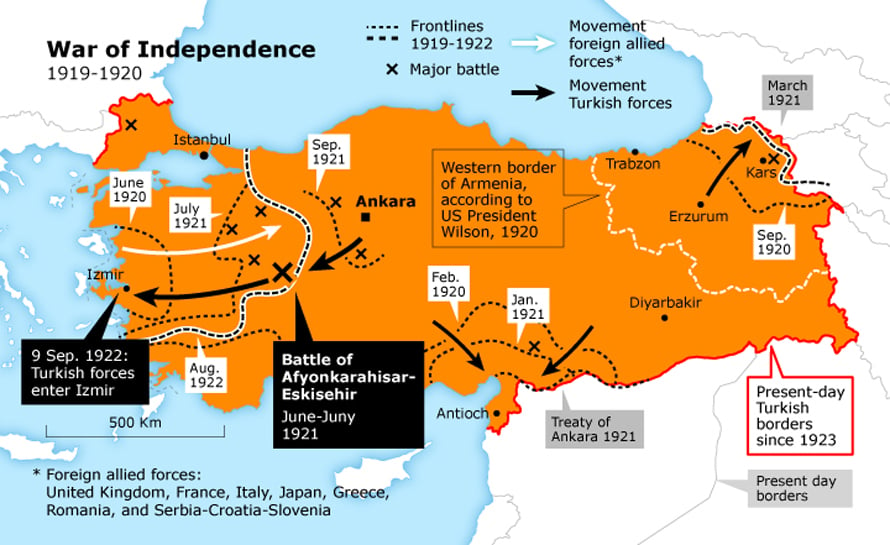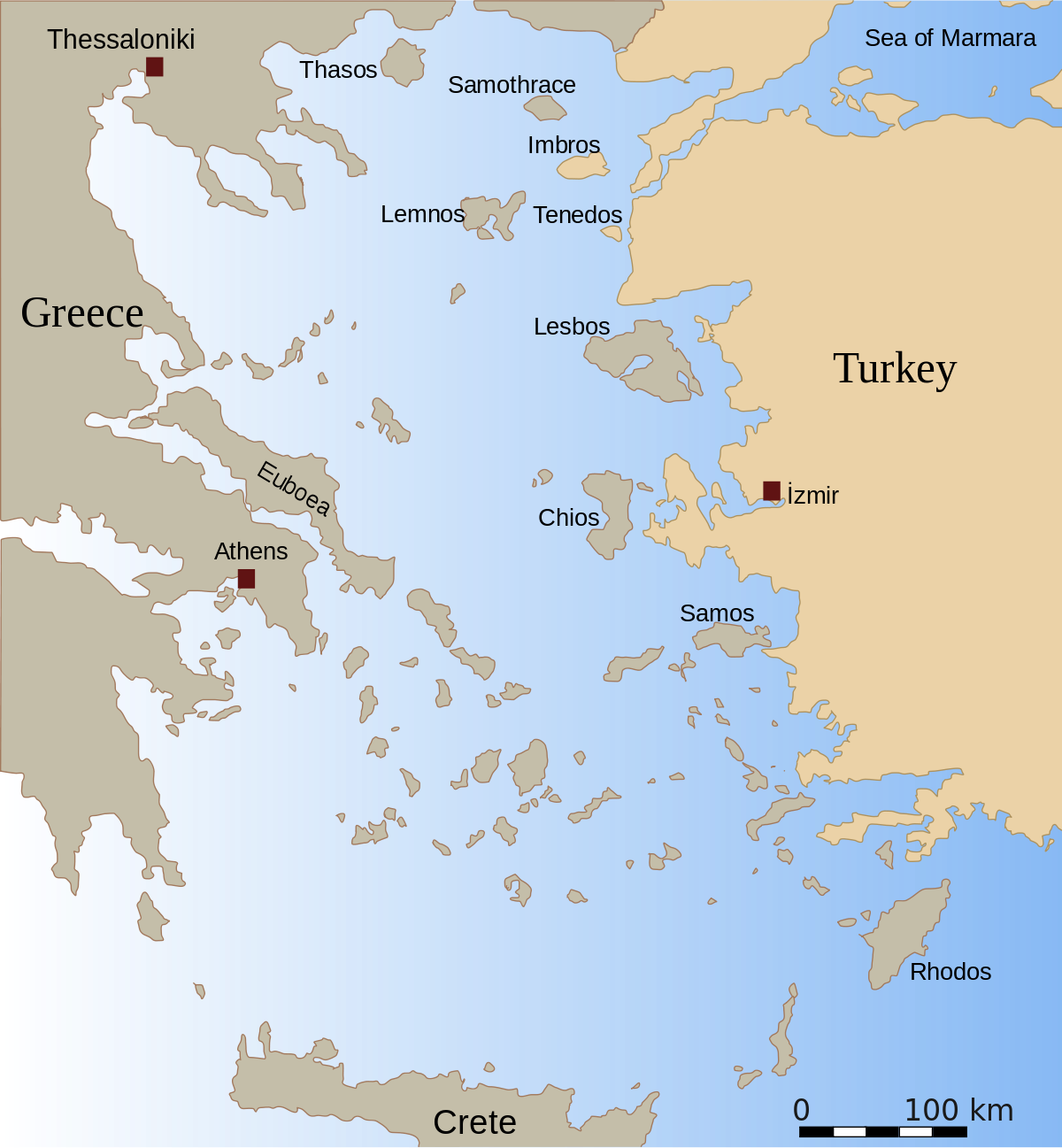from those of military POWs to civilian ones. The
introduction to the Ottoman document mentions 4
chapters, only two of which TNT has been able to
obtain, transcribe and translate (1 & 2 below).//

The war went on into 1922 and peace was agreed to in 1923.
Contents
1 – What Our Civilian Prisoners in Greece Witnessed
2 – Important Statements from our Prisoner Officers
3 – Tragedies That Befell Our Poor Captive Soldiers
3 – Official Reports and Documents
Section One
Our Civilian Prisoners’ Experiences
During the War of Independence, innocent men, women and children
of the
population were captured by the Greeks in contravention of laws
of humanity and the laws of civilization,
as were our poor officers and
soldiers who became prisoners on the field of battle
and who were
subjected to all kinds of torture and wretched treatment in a
variety of
locations. This is the subject of this brochure.
Ankara: Publishing and Intelligence Press
1339 (1923)
-----------------------------------------------------------------------------------
The Greeks Extracted Gold Teeth with a ‘Kasatura’ (shoe knife)
The Important Statement of a Civilian Turkish Prisoner:
The statement of Mumtaz Efendi, the son of Menlazade Hacı
Ali Paşa,
resident in (Afyon)Karahisar’s Zaviye Sultan quarter, who was taken
guiltless by the Greeks from Karahisar to Greece and who has returned,
is
presented herewith:
Question: What kinds of mistreatment and torture did you
experience
while in captivity in Greece?
What was the reason for your banishment?
Where did you stay in Greece?
What kind of treatment did other
prisoners experience and what sort of
cruelties did you witness and do ?
Answer: They took my 272.5 Ottoman liras cash money by
forceable
seizure. We were taken to the
Athens Lucia camp, where we stayed with
high-ranking officers. They took my gold ring, watch and chain,
amber
cigarette set and other things. I
appealed to get them back but the bosses
kept them and my appeals were not
acted on. They took the gold teeth
out
of the mouths of some of my co-religionists and fellow captives by
using a
‘kasatura’ (shoe knife). They also took
my prayer rug, worth
50 liras.

Afyonkarahisar in 1920.
We were
made to work hungry at menail jobs and they gave us
8 drachmas per 24 hours and
fed us fish. Complaining that we weren’t
working hard enough, they hoisted us bound up into fruit trees and beat
us to
their hearts’ content. They ridiculed and
cursed us for our beliefs
and said bad things about the Prophet Muhammed. The money we
earned from work was taken from
us and the letters we sent to our
families were burned in front of our
eyes. The Moslem clergymen who
were with
us were beaten and degraded and not allowed to worship.
When we wanted to bury our companions who
died from hunger,
beatings and torture we were denied permission. Their bodies lay for
days out in the open and
after they began to decompose they had us
bury them without ‘tekfin’ (traditional wrapping of a corpse in
Islamic
burial custom). Our
co-religionists who lay wasted in the hospital
were poisoned to death. We were brought to exhaustion because they
withheld water. To relieve ourselves we
had to walk 15 minutes away
to a ditch they had us dig.
At night when we relieved ourselves close by,
they beat us nearly to
death for despoiling the area. Those who went to the
ditch we dug were
stripped, killed and thrown into the filth, so when we went
there in the
day time to relieve ourselves we saw their bodies. There was
incredibly inhumane treatment.
Some of us were brought to homes to work as
servants. These people
were then accused
of molesting the family’s virgin daughters, forced to
convert to Christianity
and beaten and pressured to marry the girls.
In
other words, these were forced
conversions to Christianity. These
‘converts’ are still there in Greece. At
present, there are others who
have not been released and the Greeks still prey
upon them, shooting
some to death in their tents. One of the wounded was Emin Ağa of
Tavşanlı in Kütahya.
Question: Do you want
to continue your statement?
Answer: He (Emin Ağa)
came back to Karahisar but the bullet has
still not been extracted. The Greeks did many similar bad things. When
they seized me from my house they said
that “you Turks banished the
Christians in olden times here and your still
syping on us!” Without
giving me a
chance to contact anyone, they demanded my money but
I had nothing to give
them.

After his seizure at Afyonkarahisar, about parallel with
Izmir but off the map to the right, this POW was
transported from Izmir to Lucia camp in Athens and from
there to Kandia on Crete, from where he returned to
Turkey.
A month later I was brought to
Athens via Izmir and put in the Lucia
camp in Athens. I was made to work in many villages whose
names
I don’t know. Then I was
transported to Crete and I returned here from
Kandia. When the general delegation arrived we were
released.
Besides me, all of my fellow
prisoners were subjected to inhumane
treatment that would not be inflicted on
animals.
I witnessed many horrific
things. If I were to talk about all of
them it
would fill book volumes, not just the column of a newspaper. But I
will be content with what I have said
here.
Question: I have read
your statement out loud. Will you now sign
what you have written?
Answer: I have listened to your reading and I now sign to
confirm
what I have written.
Police Officer M. Rıfat (statement-taker)
Mumtaz (statement-giver)

Hiç yorum yok:
Yorum Gönder